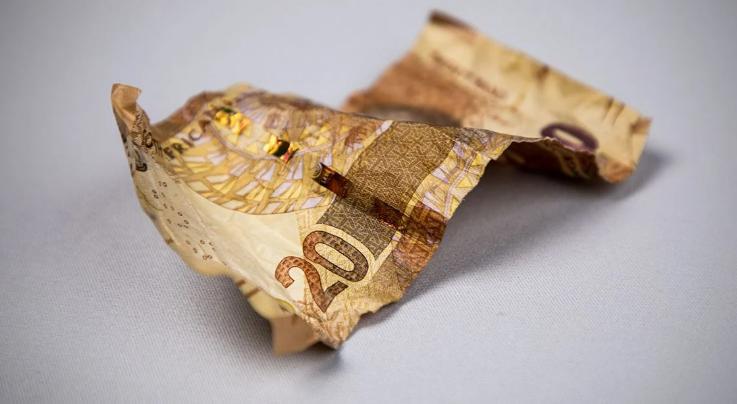Africa-Press – South-Africa. The Association for Monitoring and Advocacy of Government Pensions (AMAGP) has raised serious concerns over the squandering of billions in public servants’ pension funds through politically driven and high-risk investments.
The AMAGP is a voluntary organisation consisting of former state employees who are pensioners as defined in the Government Employees Pension Law.
The AMAGP has a following of around 8,000 GEPF pensioners and is the only structure that actively voices the concerns of such pensioners.
According to Zirk Gous, the spokesperson for AMAGP, R33 billion has been effectively lost, with significant investments like the Daybreak poultry farm and the Isibaya Fund emblematic of this ongoing crisis.
In 2015, the Public Investment Corporation (PIC) purchased Daybreak Farms on behalf of the Government Employees Pension Fund (GEPF) for R1.2 billion, with the GEPF comprising a 33% stake in the company.
Gous explained that the deal received massive negative publicity right from the beginning, which pointed to questionable governance as the core issue.
By 2024, the situation had deteriorated so badly that multiple liquidation attempts were made, and Daybreak ultimately entered business rescue in May 2025.
“It failed to pay all their clients and service providers, it failed to pay the workers, and there was massive unhappiness,” Gous said.
He added that poor decisions, a lack of accountability, and incompetence damaged thousands of jobs and pensions.
However, Daybreak is not an isolated case. Gous pointed to the GEPF’s broader investment strategy under the PIC, particularly the Isibaya Fund, as deeply flawed.
According to the GEPF, the Isibaya Fund is a PIC mandate established to channel capital into projects that address societal challenges, facilitate transformation, and support job creation in South Africa and Africa.
“The GEPF is managing R2.3 trillion of state pensioner money,” he said. “It’s a massive, massive pot of money.”
Gous added that a substantial portion of this is channelled into unlisted entities under a transformation policy, investments that are supposed to be in line with international best practices.
However, Gous warned that in South Africa, this has translated into investments almost exclusively in B-BBEE entities, many of which are politically connected and financially unstable.
Violating their fiduciary duties
Citing findings of a judicial commission of inquiry into the PIC, Gous said that 44% of Isibaya’s investments are either failing or at risk of failing.
“That is indicative of the risk,” he said. He pointed out that the GEPF has written off more than R6 billion in impaired funds over the past two years alone.
Of these losses, 24 to 26 of the failed investments came from the Isibaya portfolio. “Now, if that is not high risk, you must advise me what is,” he said.
Gous also raised the broader governance concern, which is that the GEPF and PIC are under “total political control.”
He stated that the Minister of Finance approves all investments, which opens the door to the misuse of pension money for political ends.
“The moment you use pension fund money for political considerations, it is problematic,” Gous warned. “You cannot use the funds of a government pension fund. It is simply, in principle, problematic.”
He added that the Minister of Finance, the GEPF board of trustees, and the PIC board of directors should be held accountable for the pain and suffering of the Daybreak employees.
He accused them of acting not in the best interest of pensioners, but in the interest of the ruling political party, thereby violating their fiduciary duties.
Quantifying the scale of the loss, Gous referred to a report submitted to Parliament’s Standing Committee on Finance in 2016.
The report showed that R44 billion had already been invested in politically aligned projects with a 44% failure rate.
“Between 2015 and today, total money written off as impairments has reached R52 billion, with R31 billion lost specifically through Isibaya investments,” He said.
“If you invest any money in any private investment company, a 1% failure rate can be acceptable,” Gous explained. “What they are writing off here is 3%. That 3% is R33 billion. That, in my mind, is big money.”
Despite the scale of the loss, Gous was careful to clarify that the GEPF is not currently at risk of collapse. “The solvency rate of the GEPF is, at this point in time, stable,” he said.
“State pensioners will receive their monthly pension.” But he stressed the urgency of acting now to stop further losses. Whether the lost billions can be recovered is unclear.
Gous explained that, in principle, it can be, but eventually it means that you will have to go to the Minister of Finance, and that money will have to come from the taxpayer.
He warned that unless decisive action is taken, it could mean an additional tax of R33 billion on the public.
To fix the problem facing public pensions, Gous said the Government Employee Pension Law needs to be amended.
“We must amend the Public Investment Corporation Act to remove the political control.” He added that the judicial commission, known as the Mpati Commission, had already made this recommendation.
This recommendation included the Deputy Minister of Finance not chairing the PIC’s board. “However, that specific recommendation was simply thrown out the door,” Gous said.
Gous added that the AMAGP is investigating its options and considering legal and legislative reforms. “That will be the solution to prevent further bad investments,” he said.
For More News And Analysis About South-Africa Follow Africa-Press






